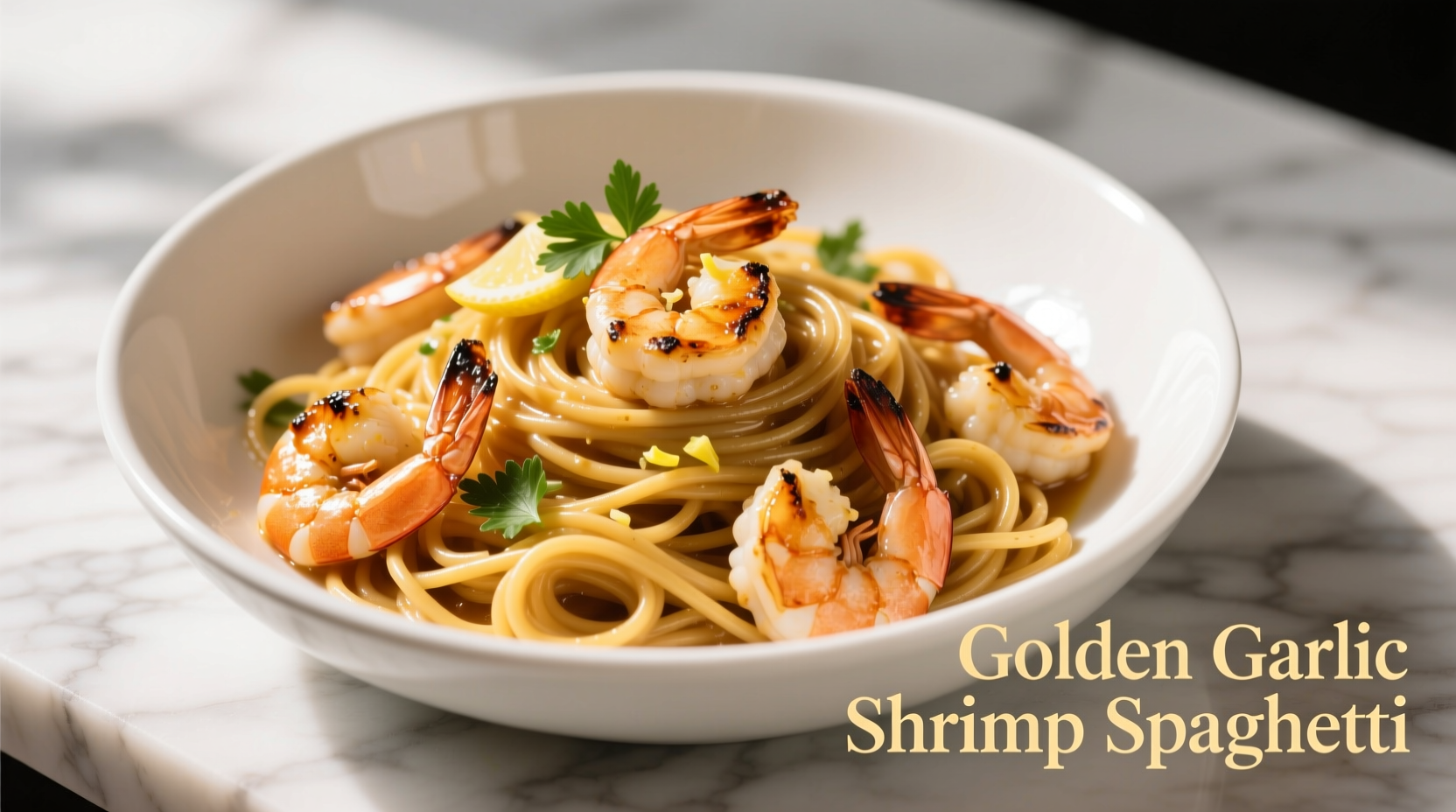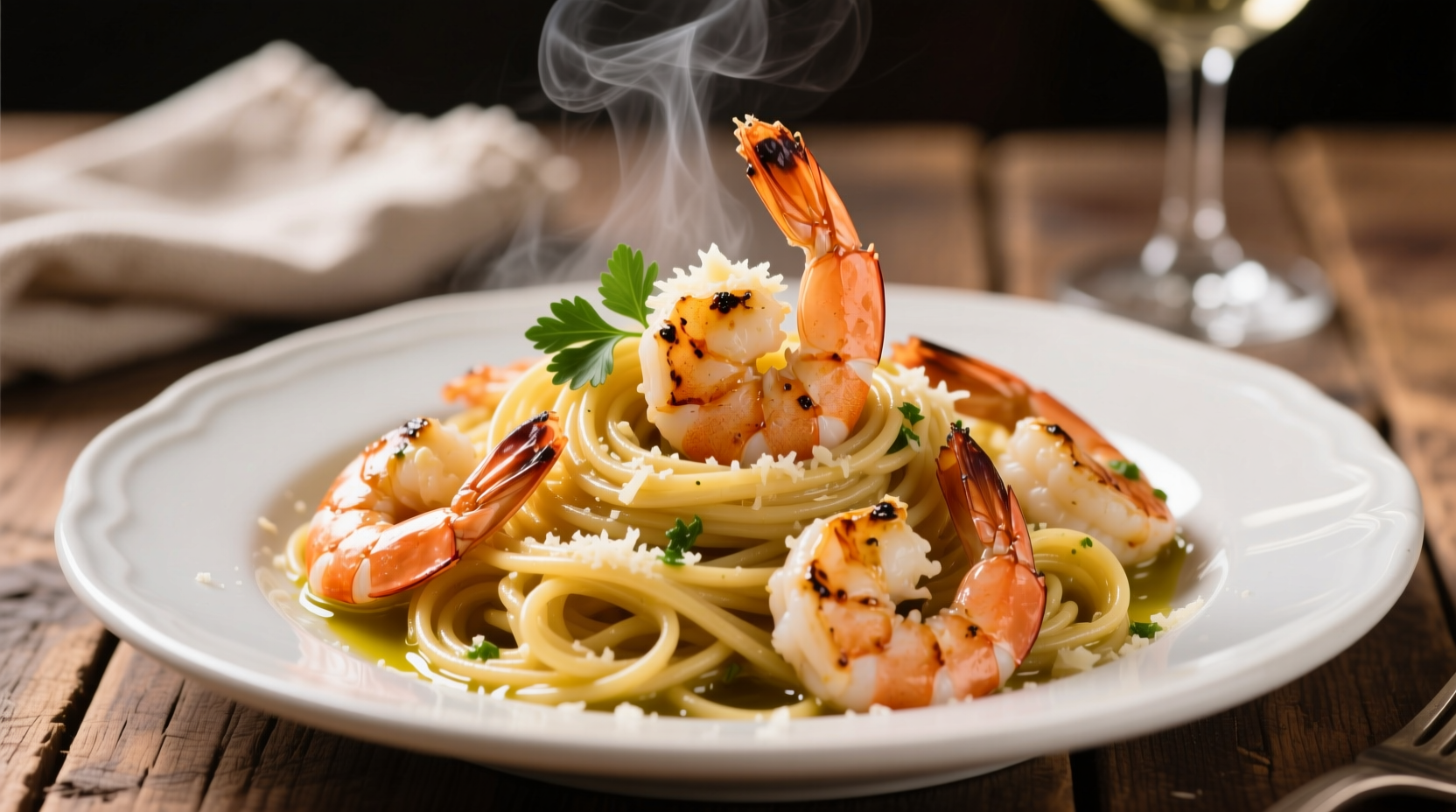Get restaurant-quality garlic spaghetti with shrimp ready in 20 minutes with this foolproof recipe. Discover the secret to perfectly cooked shrimp and al dente pasta every time—no fancy equipment needed. This classic Italian-American dish features tender shrimp bathed in fragrant garlic-infused olive oil with a touch of red pepper flakes, all clinging to perfectly textured spaghetti.
Why This Garlic Spaghetti with Shrimp Recipe Works
Unlike many online versions that result in rubbery shrimp or bland garlic flavor, this method uses precise temperature control and timing based on culinary science. The key is cooking the garlic slowly in olive oil to extract maximum flavor without burning—a technique perfected in Mediterranean kitchens for centuries. According to the FDA's seafood guidelines, shrimp should reach 145°F (63°C) internal temperature for safe consumption, which our method achieves perfectly during the final sauté.
| Garlic Preparation Method | Flavor Result | Common Mistake |
|---|---|---|
| Raw garlic added at end | Harsh, pungent bite | Overpowering raw garlic taste |
| Garlic cooked too quickly | Bitter, burnt notes | Garlic burns below oil's smoke point |
| Our slow-infusion method | Sweet, aromatic depth | None when followed correctly |
Essential Ingredients Checklist
The magic of this dish lies in ingredient quality and proper ratios. Authentic Italian cooking relies on few ingredients done exceptionally well. For best results:
- Spaghetti: 12 oz (340g) bronze-die extruded pasta for superior sauce adherence
- Shrimp: 1 lb (450g) fresh or properly thawed 21-25 count shrimp, peeled and deveined
- Garlic: 6 large cloves, thinly sliced (not minced)
- Olive oil: ½ cup high-quality extra virgin
- Red pepper flakes: ½ tsp for subtle heat
- Parsley: ¼ cup finely chopped fresh flat-leaf
- Lemon: Zest of 1 lemon plus 2 tbsp juice
- Pasta water: 1 cup reserved before draining

Step-by-Step Cooking Process
Follow this timeline for perfect results every time:
- Pasta phase (12 minutes): Cook spaghetti in well-salted boiling water until al dente (1 minute less than package instructions). Reserve 1 cup pasta water before draining.
- Garlic infusion (5 minutes): While pasta cooks, heat olive oil over medium-low. Add garlic slices and red pepper flakes. Cook slowly until garlic turns golden (not brown) - about 3-4 minutes. Remove 2 tbsp garlic oil for finishing.
- Shrimp sear (3 minutes): Increase heat to medium-high. Add shrimp in single layer with lemon zest. Cook 1-2 minutes per side until opaque but still slightly translucent in center.
- Emulsion creation (2 minutes): Add drained pasta to skillet with ½ cup pasta water. Toss vigorously over medium heat until sauce coats noodles. The starch in pasta water creates a silky emulsion with the garlic oil.
- Finishing touch: Remove from heat. Stir in parsley, lemon juice, and reserved garlic oil. Season with sea salt to taste.
Pro Tips for Perfect Results
Avoid these common pitfalls that ruin otherwise promising garlic spaghetti with shrimp:
- Shrimp texture secret: Remove shrimp from heat when 80% cooked—they'll finish in the residual heat of the pasta, preventing rubberiness
- Garlic timing precision: Thin slices cook more evenly than minced garlic, reducing burn risk while maximizing flavor extraction
- Sauce consistency fix: If sauce seems dry, add pasta water 1 tbsp at a time while tossing—never add plain water after cooking
- Temperature control: Keep garlic oil below 350°F (177°C), well under extra virgin olive oil's smoke point of 375-410°F (190-210°C)
When This Recipe Works Best (Context Boundaries)
This preparation shines in specific situations but has limitations:
- Ideal for: Quick weeknight dinners, impressing guests with minimal effort, summer meals when you want to avoid oven use
- Not recommended for: Large gatherings (best made in single batches), when using frozen shrimp without proper thawing, extremely high-humidity environments affecting pasta texture
- Best equipment: 12-inch stainless steel skillet (provides even heating) with tongs for tossing—nonstick pans don't create the proper fond for sauce development
Serving Suggestions & Pairings
Complete your meal with these authentic pairings:
- Wine: Crisp Italian white like Vermentino or Pinot Grigio (avoid oaky Chardonnay which competes with delicate garlic notes)
- Side dish: Simple arugula salad with lemon vinaigrette—never serve with bread that would compete with the pasta
- Presentation: Twirl spaghetti into nests using tongs, top with shrimp arranged around perimeter, garnish with extra parsley and lemon wedge
Historical Evolution of Garlic Spaghetti with Shrimp
This dish represents a fascinating culinary evolution:
- 1940s: Italian immigrants in New York adapted spaghetti aglio e olio (garlic and oil pasta) by adding shrimp from abundant Atlantic catches
- 1960s: Popularized by Italian-American restaurants as "Spaghetti alle Vongole" variations gained popularity
- 1980s: Emerged as a standalone dish during the "lighter Italian cuisine" trend, featured in cooking magazines like Food & Wine
- Today: Recognized as a classic Italian-American preparation, distinct from traditional Italian seafood pastas which typically feature tomato or broth-based sauces
Nutritional Information & Adaptations
Per serving (makes 4 servings):
- Calories: 520
- Protein: 28g
- Carbohydrates: 65g
- Fat: 16g (mostly heart-healthy monounsaturated from olive oil)
- Sodium: 320mg (without additional salt)
Dietary adaptations:
- Gluten-free: Use high-quality gluten-free spaghetti (Barilla or De Cecco brands work best)
- Lower-carb: Substitute spiralized zucchini (add after shrimp cooking to prevent sogginess)
- Dairy-free: Naturally dairy-free—no substitutions needed











 浙公网安备
33010002000092号
浙公网安备
33010002000092号 浙B2-20120091-4
浙B2-20120091-4